 Whether you ae a shopping addict or use your credit cards to pay your bills, there may come a time when you need help to help organize your bills, repay your debt, and improve your finances. For some, Debt Relief is the answer. But before you jump in head first, it's time for a course in Debt Relief 101.
Whether you ae a shopping addict or use your credit cards to pay your bills, there may come a time when you need help to help organize your bills, repay your debt, and improve your finances. For some, Debt Relief is the answer. But before you jump in head first, it's time for a course in Debt Relief 101.
When Should You Use a Debt Relief Company?
Debt Relief companies combine all of your debts into one payment, with the purpose of simplifying your repayment schedule and lowering your overall monthly payment amount. A Debt Relief company may be able to help you pay off your debt more quickly and alleviate some of the stress associated with paying bills. If you have mounting unsecured debt (e.g., credit card bills, store cards, medical bills, personal loans, collections, etc.), working with a trusted Debt Relief company is something to consider.
What Types of Debt Relief Plans are Available?
A good Debt Relief company can help you choose the best plan for your financial situation based on your income level, type of debt, and ability to make consistent payments.- Debt Consolidation Program - This program consolidates your unsecured debt into a single monthly payment. The debt consolidation company then distributes the designated funds to your creditors. They work directly with your creditors to reduce interest rates, eliminate late and over-the-limit fees, and reduced monthly payments.
- Debt Settlement Program - This plan helps people who can't repay their debt in full and are facing bankruptcy. with a Debt Settlement program, your Debt Relief company will work with your creditors to settle your accounts for a portion of the amount owed.
Are all Debt Relief companies the same?
No! Just as each person's financial situation is unique, so are Debt Relief companies. You need to find a company that offers various plans and has specialists to guide you to the right program based on your needs.
Are There Bad Debt Relief Companies?
Yes! If you choose the wrong company, you could end up in a worse situation than when you started. To prevent this disaster, follow these tips:
- Don't enroll in a program with a company that hasn't reviewed your financial situation.
- Don't be lured by companies promising government money to erase your debt. There are no government programs that do this.
- Check out each company's Better Business Bureau report, and only work with a company that has an A or A+ rating.



 Are you trying to get out of debt but having trouble paying down your credit card bills?
Are you trying to get out of debt but having trouble paying down your credit card bills?
 Sometimes the only way to stop a snowballing problem is to go back to the top of the hill and find out what started it.
Sometimes the only way to stop a snowballing problem is to go back to the top of the hill and find out what started it.
 In order to pay off credit card debt successfully, it is important to commit yourself to improving your financial situation for the long term. There is no such this as a quick fix. Getting out of debt takes dedication and a realistic plan. With so many options to choose from, it can be overwhelming to figure out where to begin, where to seek advice, and whether you should tackle the debt on your own or enlist the services of a debt relief provider. Let's look at your options.
In order to pay off credit card debt successfully, it is important to commit yourself to improving your financial situation for the long term. There is no such this as a quick fix. Getting out of debt takes dedication and a realistic plan. With so many options to choose from, it can be overwhelming to figure out where to begin, where to seek advice, and whether you should tackle the debt on your own or enlist the services of a debt relief provider. Let's look at your options.
 So you’re ready to get out of debt once and for all. The question is, how do you do it and what options do you have. I’m going to share the options available to you as well as the pros and cons of each.
So you’re ready to get out of debt once and for all. The question is, how do you do it and what options do you have. I’m going to share the options available to you as well as the pros and cons of each. 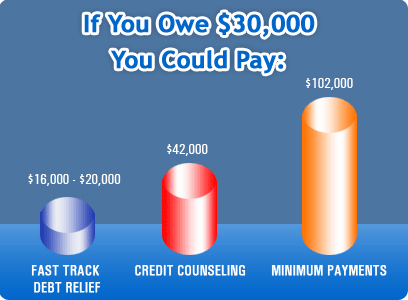
 Money is one of the topics couples fight about most often. Debt brought into marriage is an especially troublesome part of many couples’ money problems. Research shows that debt brought into marriage is the number one problem for newlyweds. Unfortunately, debt never rests, sleeps, or goes on vacation and as long as you have debt you will be in financial bondage.
Money is one of the topics couples fight about most often. Debt brought into marriage is an especially troublesome part of many couples’ money problems. Research shows that debt brought into marriage is the number one problem for newlyweds. Unfortunately, debt never rests, sleeps, or goes on vacation and as long as you have debt you will be in financial bondage.


 Dealing with Debt
Dealing with Debt
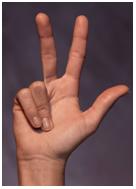 Last week I discused the first two parts to getting out of debt FAST!
Last week I discused the first two parts to getting out of debt FAST!
 Know about CONTROLLING YOUR DEBT!
Know about CONTROLLING YOUR DEBT!



